1st April 2022 – Shabbat is almost here
And today we will listen to a Yiddish lullaby by Abraham Goldfaden, sung by the Ukrainian singer Netania Davrath.
Hello, I hope you are well. After the beginning of the invasion of Ukraine I removed my picture from this weekly letter. For now, the war has not stopped and today we turn our attention back to Ukraine.
It is normal that even without premeditation, Ukraine appears on Music Before Shabbat. Baal Shem Tov, the founder of Hasidism, was born in what is now Ukraine, in Okopy, and I think that in Hasidic philosophy music has a special place. Apart from the fact that Ukraine is huge.
In any case, the singer we will listen to today was born in Rivne, when it was part of the Soviet Union, and which today is Ukraine, and the author of the piece was born in Starokostiantyniv in times when it was part of the Russian Empire, which is now also Ukraine. I hope you enjoy this sad and beautiful lullaby.
| Share this with a friend, right from here |
About Netania Davrath
 Netania Davrath was born in Rivne on August 12th of 1931. We already visited Rivne, or Rovno, in this edition dedicated to Henry Sapoznik, as his parents were from there.
Netania Davrath was born in Rivne on August 12th of 1931. We already visited Rivne, or Rovno, in this edition dedicated to Henry Sapoznik, as his parents were from there.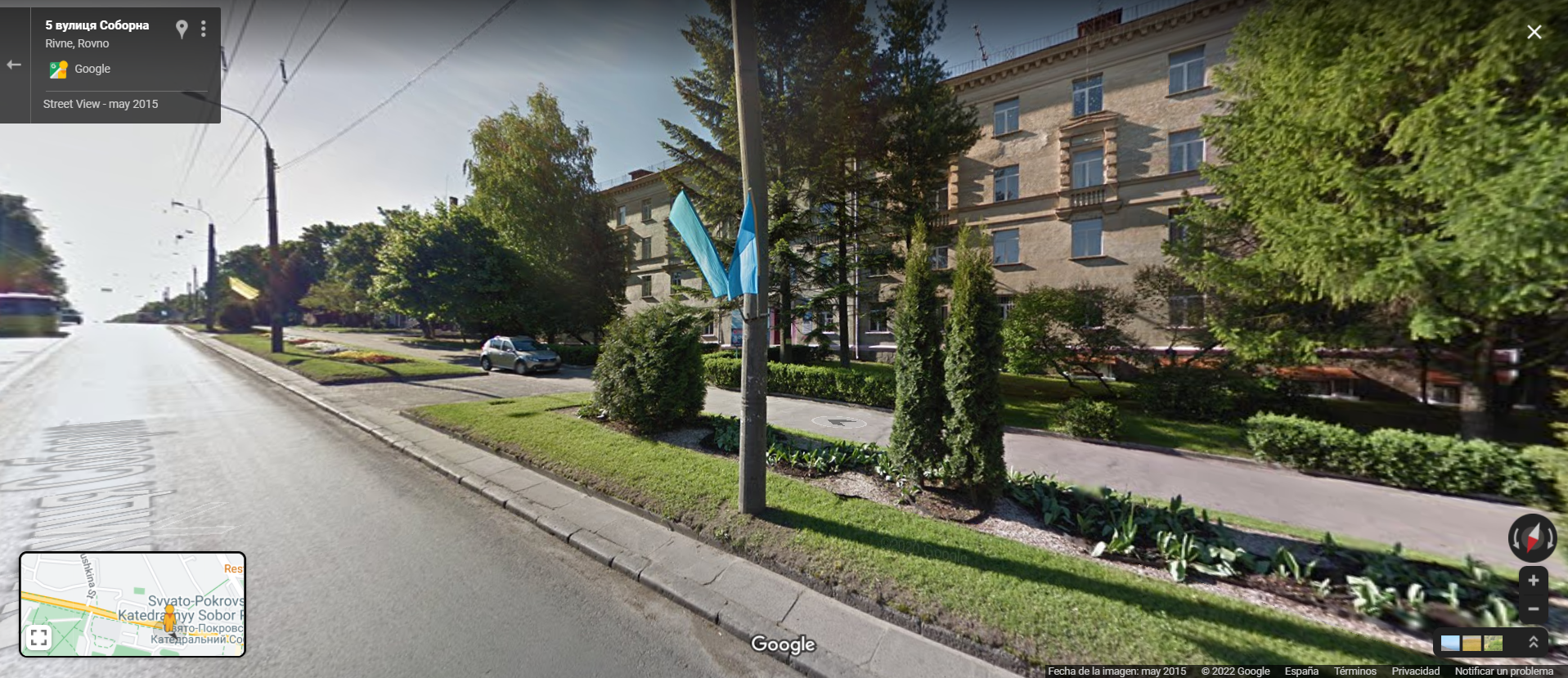
She sang opera and gave singing recitals with conductors such as Bernstein, Barbirolli, Stokowski and Mehta. She was attracted by folk music and she spoke 8 languages.
Her biography in Wikipedia in Hebrew is mentioned even in the website of the National Library of Israel, so I will trust it to be reliable. It explains some more details, such as that before settling in Israel, during the Second World War, the family moved to Baku (Azerbaijan), after the war, to Poland and from there to Israel after the War of Independence. From the mid-1950s she lived outside Israel: she studied in Italy and New York and during this period he recorded the piece we are about to hear. In 1963 she returned to Israel and settled in Ramat Gan (that borders Tel Aviv to its east), although she continued to perform abroad.
She died of cancer in 1987 and is buried in Bat Yam Cemetery.
About Abraham Goldfaden
Abraham, or Avrom, Goldfaden, or Goldfadn, is the author of the songs we will listen to today. He is considered the father of the Yiddish theatre.
The Yivo Encyclopedia of Jews in Eastern Europe there is a huge biography of him. I will make a summary. 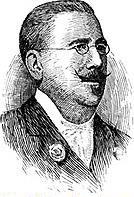
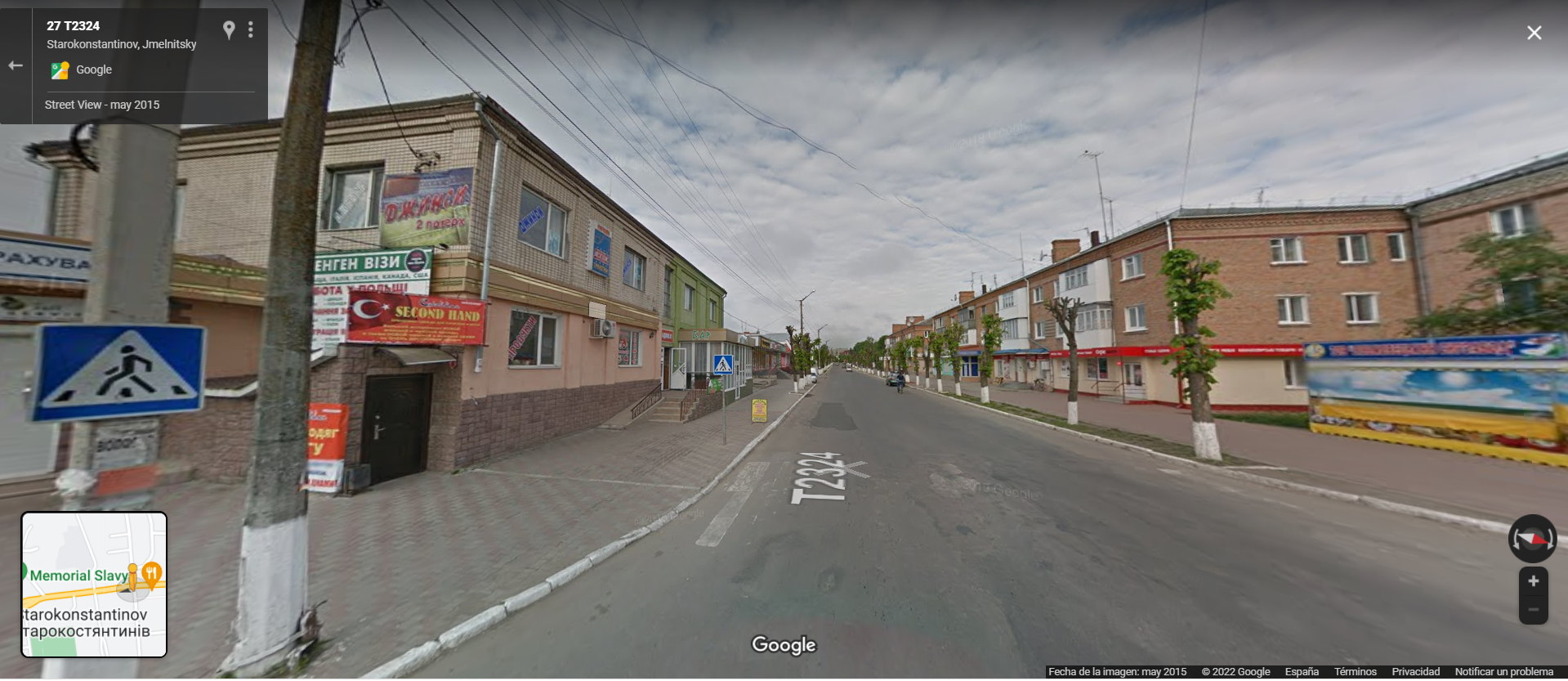
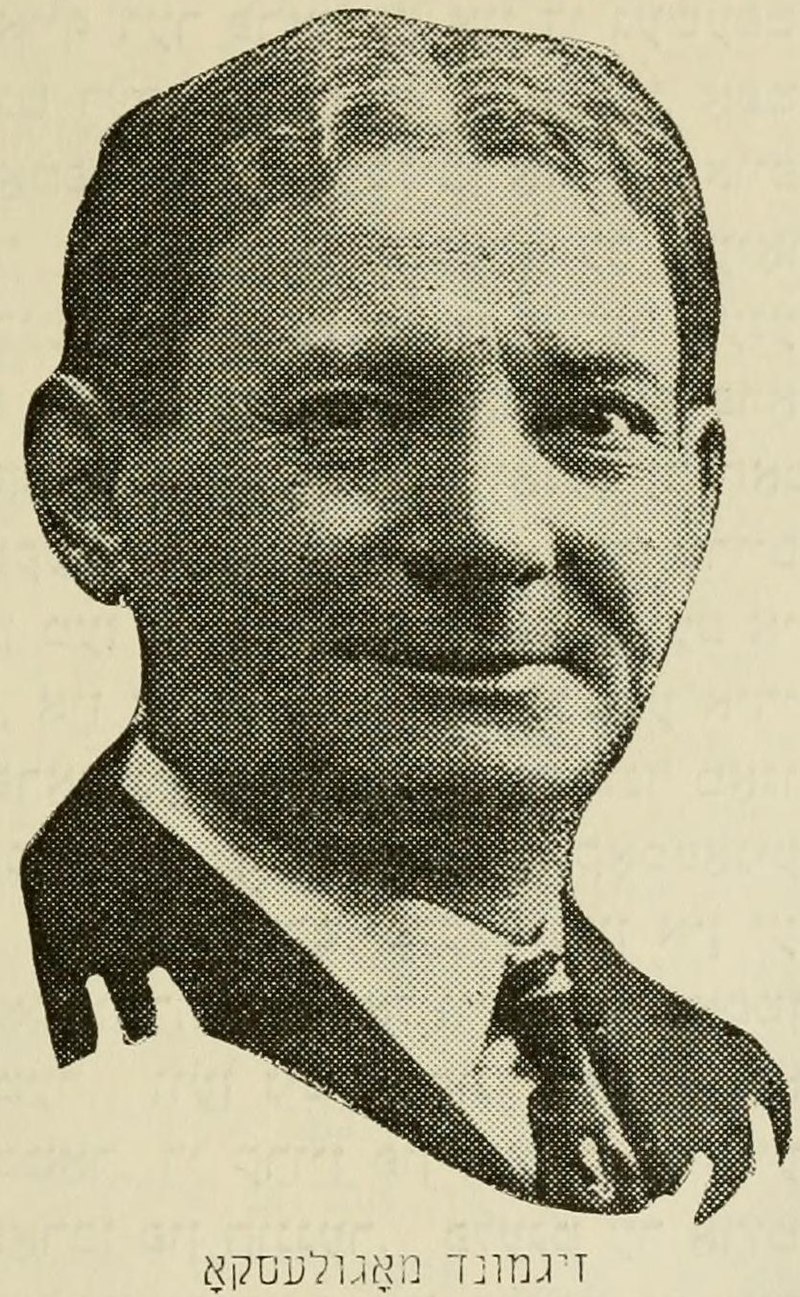
Goldfadn ultimately settled in Lemberg, where he served as director of a Yiddish theater in 1894–1895. In 1903 he returned to America, where he lived in poverty.
About the piece
This piece “Rozhinkes mit mandlen” (Raisins and Almonds), is from the Shulamis, by Abraham Goldfaden, from 1881. According to YIVO: 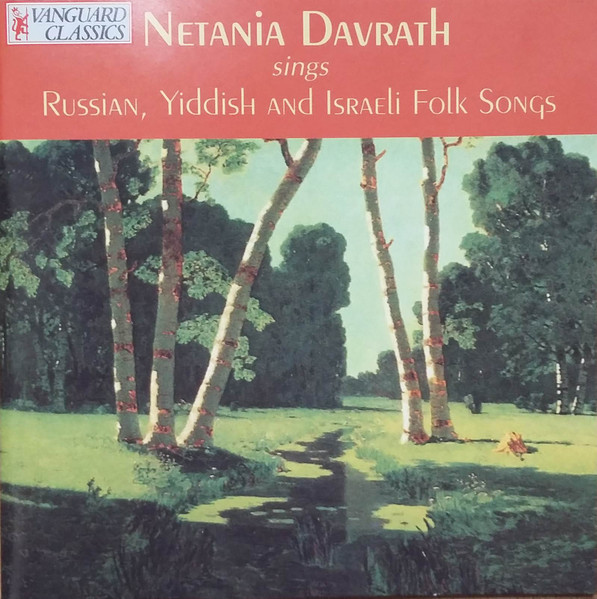
“Shulamis, in four acts and fifteen tableaux, depicts the love of a country girl and a wayward scion from Jerusalem. The story follows operatic conventions, including a third act mad scene and final marriage tableau at the Great Temple in Jerusalem.
Placing the era of First-Temple Israel onstage allowed him to fuse culture with nationalism in a manner similar to Verdi’s opera Nabucco. The work also underscored a new theme—for Jews—of romantic love linked to social responsibility.”
And the recording of today is included in the album Netania Davrath sings Yiddish Folk Songs with orchestra conducted by Robert DeCormier, released by Vanguard Records in 1965 (different sources mention 1962 or 1963). Vanguard Records was founded by the brothers Maynard and Seymour Solomon in June 1950 in New York and it is worth of mention itself. You can learn more on the website of ACE Records.
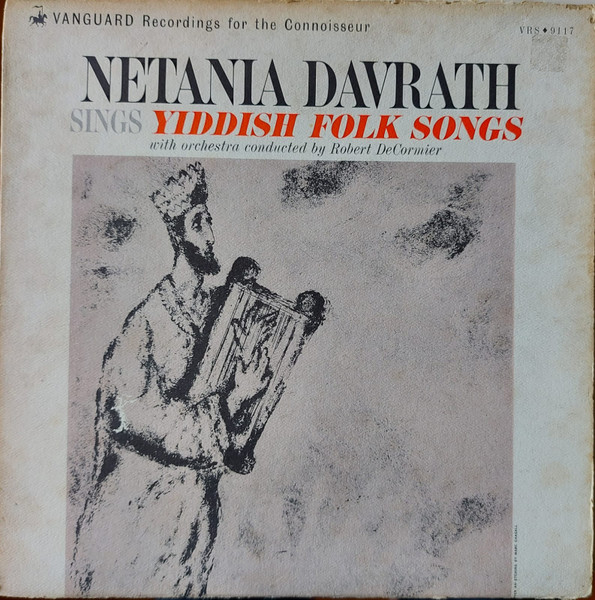
It is also included in the compilation album Netania Davrath sings Russian, Yiddish and Israeli Folk Songs.
Many other artists have sung this piece. Click their names if you want to listen to their versions: The Barry Sisters, Itzhak Perlman, Jan Peerce, Richard Tucker, Geula Gill…
You can find the lyrics in Yiddish and in English, here.
Click the picture to listen to Rozhinkes mit Mandlen by Netania Davrath:
